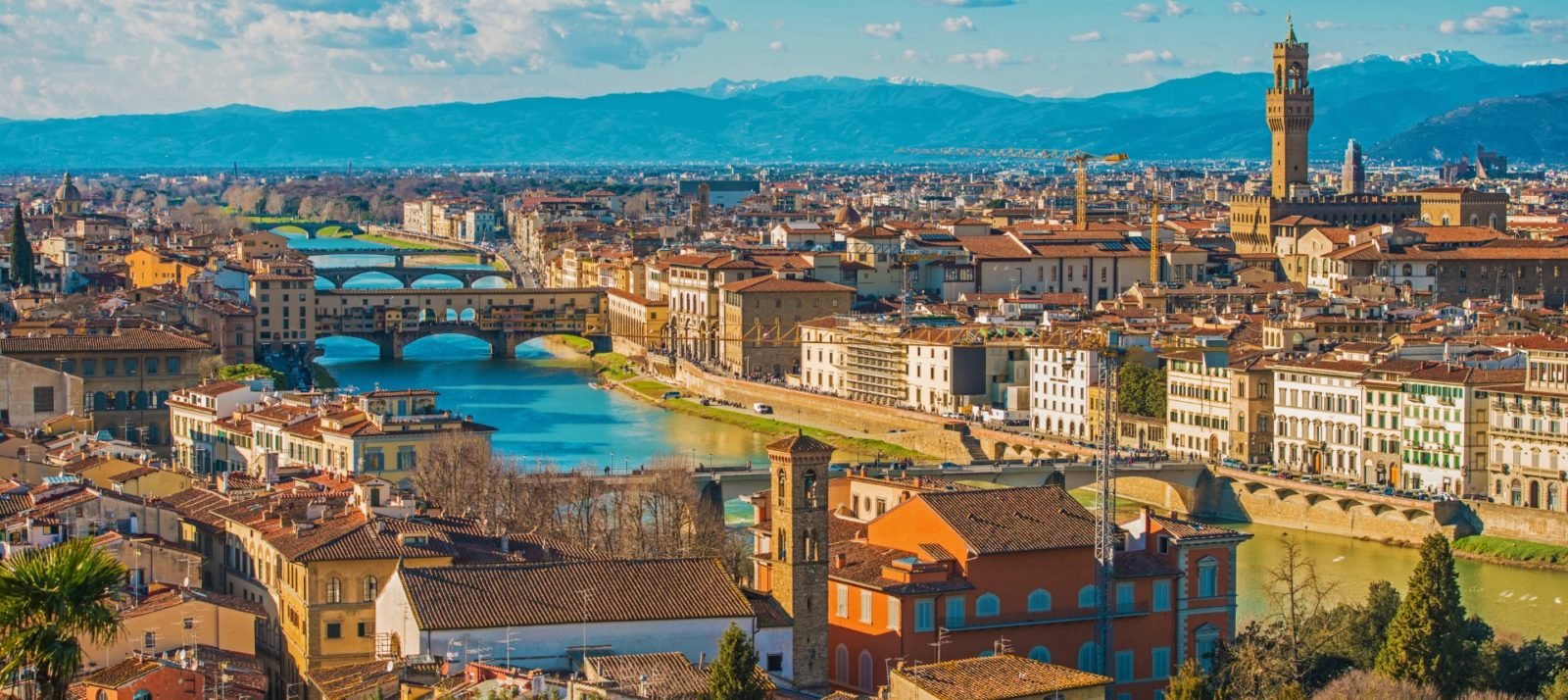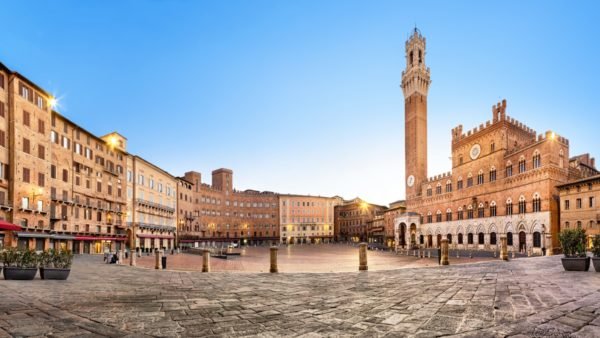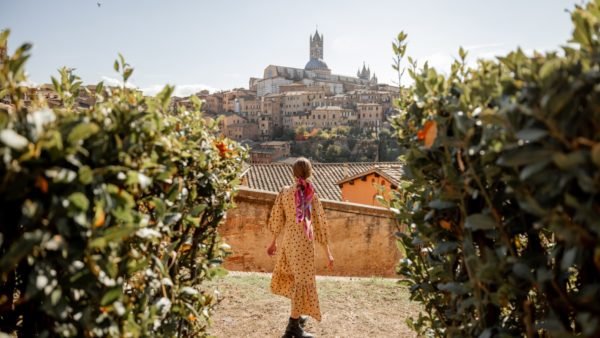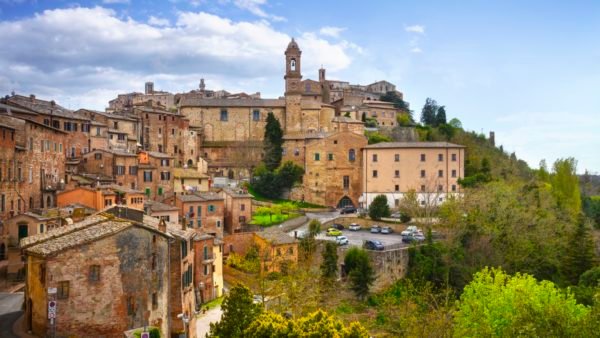Florence is one of the most popular destinations in the world. And it can get crowded during peak season. The question of when to visit Florence is vital, as the timing of your trip can significantly impact your experience. To help you decide, we’ll explore the best time to visit Florence with kids, taking into consideration weather, crowds, festivals, and events, to help you plan an unforgettable journey to this enchanting city.
Best Seasons to Visit Florence
Florence experiences distinct seasons, each with its unique charm and characteristics. Is there a best time to visit Florence? Let’s explore the pros and cons of visiting Florence during each season:
1. Spring (March to May)
Pros:
- Mild Weather: Spring brings comfortable temperatures, making it ideal for outdoor exploration without extreme heat or cold.
- Blooming Gardens: The city’s gardens and parks burst into colorful bloom, creating picturesque settings.
- Cultural Events: Spring sees various cultural events, such as the Maggio Musicale Fiorentino, an annual opera and concert festival.
Cons:
- Tourist Crowds: Spring is one of the most popular times to visit, so expect crowds, especially at renowned attractions like the Uffizi Gallery.
- Higher Prices: With increased demand, accommodation and dining costs can be higher.
2. Summer (June to August)
Pros:
- Sunny Days: Summer brings long hours of daylight and plenty of sunshine, perfect for exploring and outdoor dining.
- Festivals: Summer months see festivals like Calcio Storico, a historic soccer match, and the San Giovanni Feast.
Cons:
- Hot Weather: High temperatures can be uncomfortable for walking and sightseeing, so be prepared for the heat.
- Crowded Streets: Florence is packed with tourists during the summer, which can lead to long lines and crowded attractions.
3. Autumn (September to November)
Pros:
- Mild Weather: Autumn offers pleasant temperatures and is less crowded compared to the summer months.
- Wine Harvest: Tuscany’s wine regions come alive during the grape harvest season, offering wine tours and tastings.
Cons:
- Changeable Weather: While generally pleasant, the weather can be unpredictable, with occasional rain.
- Shorter Days: Days start to get shorter in autumn, so plan your activities accordingly.
4. Winter (December to February)
Pros:
- Low Crowds: Winter is the least crowded season, offering a more intimate and peaceful experience at major attractions.
- Lower Prices: You can find great deals on accommodations and flights during the winter.
Cons:
- Cool Temperatures: Winter can be chilly, with occasional rain and even some snow, so be prepared for the cold.
- Reduced Daylight: With shorter days, you’ll have less time for sightseeing.
Monthly Breakdown: When to Visit Florence
Let’s delve into a detailed monthly breakdown to help you decide the best time to visit Florence:
March
Pros:
- Spring blooms start to appear.
- Milder temperatures make outdoor exploration pleasant.
- Fewer tourists compared to the peak summer season.
- You can catch the famous Scoppio del Carro, a historic explosion event during Easter.
Cons:
- Tourist numbers begin to increase as the season progresses.
- Weather can still be changeable, so pack accordingly.
April
Pros:
- Blooms in the Boboli Gardens and other city parks are in full splendor.
- Ideal weather for exploring the city.
- You can witness the annual explosion event of the Cart Fireworks on Easter Sunday.
Cons:
- Increasing tourist numbers as April progresses.
- Prices for accommodations and flights may start to rise.
May
Pros:
- Pleasant spring weather continues.
- Gardens and landscapes are at their most colorful.
- Ideal for enjoying outdoor dining.
Cons:
- High tourist season begins, with peak crowds by the end of the month.
- Accommodations and restaurant reservations can be in high demand.
June
Pros:
- Warm and sunny weather.
- Longer daylight hours for exploration.
- Enjoy outdoor festivals and events like Calcio Storico.
Cons:
- High summer temperatures can be uncomfortable for extended outdoor activities.
- Florence sees an influx of tourists during this time.
July
Pros:
- Long and sunny days for sightseeing.
- Enjoy outdoor dining in the pleasant evenings.
- The city hosts the Calcio Storico finals, a historic soccer match.
Cons:
- High summer heat can make walking and sightseeing uncomfortable.
- Expect large crowds and busy attractions.
August
Pros:
- Continued warm and sunny weather.
- Ideal for outdoor dining and enjoying gelato.
- The annual San Giovanni Feast takes place.
Cons:
- High temperatures can be oppressive, especially in the midday sun.
- Most locals take their vacations, so some businesses may close for the month.
September
Pros:
- Mild and pleasant weather.
- Fewer tourists compared to the peak summer season.
- Wine enthusiasts can enjoy the grape harvest season with tours and tastings.
Cons:
- Weather can be unpredictable with occasional rain.
- Days start to get shorter as autumn approaches.
October
Pros:
- Pleasant temperatures continue, making it an excellent time for outdoor activities.
- You can experience the grape harvest season in the Tuscan wine regions.
- Fewer crowds compared to the summer months.
Cons:
- Weather can be changeable with more rainy days.
- Shorter daylight hours mean you’ll have less time for sightseeing.
November
Pros:
- Mild and comfortable temperatures.
- Fewer tourists provide a more intimate experience at major attractions.
- Accommodations and flights are more affordable during this shoulder season.
Cons:
- Weather can be cool and wet, so bring appropriate clothing.
- The days continue to get shorter.
December
Pros:
- Low tourist numbers provide a quieter experience.
- Florence is beautifully decorated for the holiday season.
- You can enjoy festive events and Christmas markets.
Cons:
- December can be chilly, and occasional rain or even snow is possible.
- Shorter daylight hours limit the time for sightseeing.
January
Pros:
- Least crowded season with fewer tourists.
- Accommodations and flights are often more affordable.
- Enjoy Florence’s cultural attractions without the summer crowds.
Cons:
- January can be cold, so be prepared for the winter weather.
- Short days provide limited daylight for exploring.
February
Pros:
- Fewer tourists continue to provide a peaceful atmosphere.
- Cultural attractions remain accessible without long lines.
- Prices for accommodations and flights are budget-friendly.
Cons:
- Cold winter weather, so pack accordingly.
- Short daylight hours impact the time available for sightseeing.
Special Events and Festivals
Florence hosts various events and festivals throughout the year, adding an extra layer of cultural richness to your visit. Here are a few notable ones:
- Maggio Musicale Fiorentino (May): An annual opera and concert festival that brings music and culture to the city.
- Scoppio del Carro (Easter): A historic explosion event during Easter, dating back to medieval times.
- Calcio Storico (June): A historic soccer match in Piazza Santa Croce, featuring costumed players.
- San Giovanni Feast (June): Florence’s patron saint’s day is celebrated with a parade, fireworks, and other festivities.
- Grape Harvest Season (September-October): Tuscany’s wine regions come alive with grape harvesting activities, offering wine tours and tastings.
- Festa della Rificolona (September): A traditional event where children carry paper lanterns through the city streets.
Choosing the best time to visit Florence depends on your preferences, tolerance for crowds, and the type of experience you seek. Each season has its own unique appeal, whether it’s the blooming gardens of spring, the long sunny days of summer, the colorful landscapes of autumn, or the peaceful, budget-friendly days of winter.
For a balance of pleasant weather and fewer crowds, consider visiting Florence in the shoulder seasons of spring and autumn. These months offer a delightful combination of mild temperatures, colorful scenery, and manageable tourist numbers. However, if you’re looking to experience Florence’s vibrant festivals and don’t mind the summer heat or winter chill, you can still enjoy a wonderful visit during other times of the year.
Ultimately, Florence’s timeless beauty and rich culture are ever-present, so whenever you choose to visit, you’re sure to create lasting memories in this captivating city.




